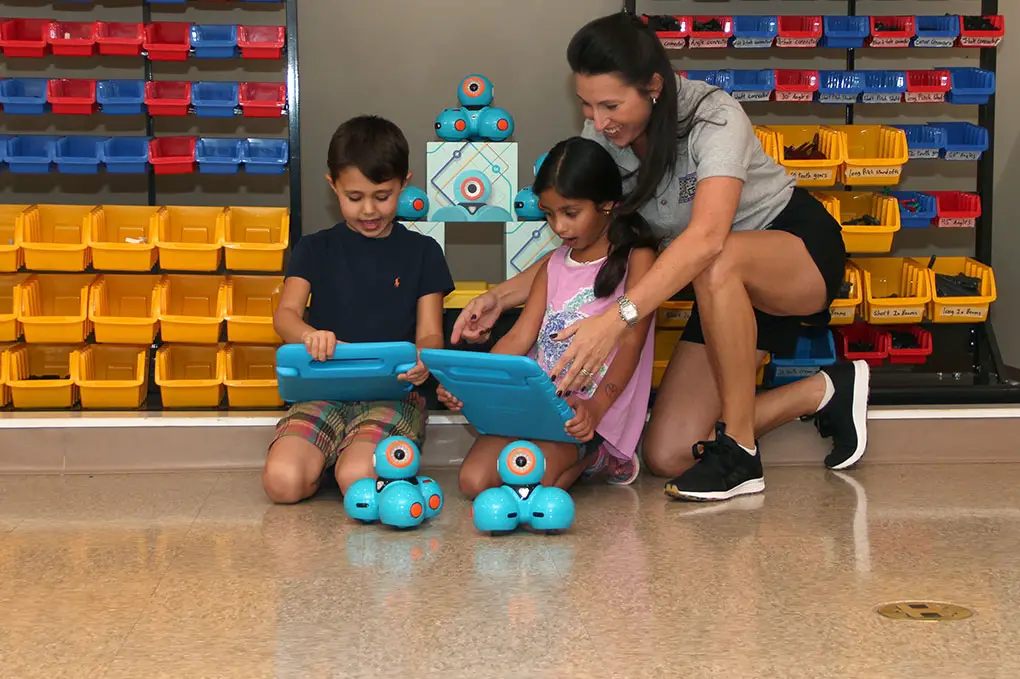
Now that the school year has come to a close, families are left deciding what they should do with their children over the summer, meanwhile, camps are struggling to open with all of the new rules and regulations being placed upon them. This year, over 10 million children will be affected as camps determine how and if they are going to open, according to the American Camping Association. Many companies are launching their own “camps” and branding them as such, but this doesn’t mean it provides the same learning and culture an established camp can provide.
With the burden on families to decide what is a quality camp offering, I have put together 5 important requirements you should look out for when selecting a virtual camp for your children, from over 15 years of experience as an educator, and over 25 years involved in the camp world as a camper, and director.
1. Accreditation by American Camping Association
ACA accreditation is key because it provides proof that the staff, the activities, and the experiences being provided fall within the American Camping Association guidelines. Not every camp is accredited by the ACA, so be sure to ask for more details from camps you are interested in joining. If a camp isn’t ACA accredited, it is recommended to look elsewhere as they are not keeping up to date with all of the rules and regulations that ensure your child’s safety.
The ACA Accreditation & Standards are a series of requirements that camps are scored on to maintain their accreditation status that ensures your child’s safety and enjoyment. More information about these requirements are available by visiting https://www.acacamps.org/staff-professionals/accreditation-standards
2. Certified Instructors
At an in-person camp, a student may be an effective camp counselor because they are constantly supervised and joined by professionals who help provide instruction and structure the activities throughout the day. However, in a virtual camp setting, children interact with one instructor, so having a certified professional is important from both a content knowledge perspective and a child-development perspective. Be sure to ask your camp leadership about counselor certification requirements. You want to ensure that those teaching are experts in their areas, such as a ropes course counselor being certified through the Association for Challenge Course Technology (ACCT). These are important details you should be requesting from your camp.
3. Background checks and clearances
Just like in-person camps where you drop your children off for days on end, virtual camps are experiences where you must ensure your child’s safety. Be careful not to lower your guard on your child’s safety because they are engaging with the camps from home and through a digital device. You must insist on background checks and clearances for the instructors who your child engages with, and this is information that your camp, if ACA accredited, is already doing.
4. Learning beyond the screen
Although your child may be working on virtual tools or software, look for options to extend their learning through physical tools, like robots or arts and crafts, to use outside of the camp day that are related to their lessons. Offscreen opportunities that are a part of the camp schedule is a great way to further allow your child to remain active and get exercise while still learning. Just because it’s virtual doesn’t mean they need to stare at a screen all day.
5. Differentiated Learning for Your Child
It’s important that camps meet the needs for your child and provide differentiated learning opportunities. Your camp should be aware of your child’s skills when coming into the camp, whether that is through a survey or intake interview. For example, if a counselor were to ask each camper what they learned at the end of the day to collect this information as a whole group, there is a large portion of that session that was being used for data collection, and not engaging your child. Some camps are using learning management systems which allows the counselor to use data to track the engagement of each child behind the scenes, and will help counselors tailor activities and lessons to meet their ability and skills, while continuing to challenge them to learn more.
Virtual summer camps can be a great opportunity for your child to build a skillset they have been exploring, brush up on some of their favorite activities, or dive deeper into an subject area they have been wanting to learn more about. Use these five guidelines to help you select from the multitude of virtual camp offerings out there to ensure that you and your child can have a summer camp experience your kids won’t forget — virtually.
Bryan L. Miller is an educator of over 15 years, serving as kindergarten teacher, K-5 computer teacher, and Director of Educational Technology at one of the largest, private, independent schools in the United States. He has spent over 25 years attending camp and working at a long-running camp outside of Bucks County, Pennsylvania, where he was a camper, C.I.T., J.C, Counselor, and Director of Boys Groups and After School Camp. He is now the Senior Director of Global Strategic Outreach at Wonder Workshop, and is working with Extreme STEAM Science Kids to provide the V-Camp offering for this summer.